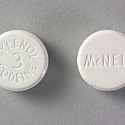Alcoholism affects families
The scene is familiar to most people: a person stands up in the meeting and says, “Hi, my name is John and I’m an alcoholic.”
“John” is in a good place. He’s where he can get help and support and the room is full of people like himself battling alcoholism.
But there’s somebody else who needs help as well and they’re not in the room. The family member or friend of the alcoholic is often the forgotten person in the journey of the disease.
Everyone knows about Alcoholics Anonymous and the success it can have but few people know about Al-Anon and it’s own 12-step recovery program for friends and families of alcoholics.
“There are about 10-15 Alcoholics Anonymous meetings around here (per week),” says “Alice,” the local coordinator of Al-Anon. As with Alcoholics Anonymous, anonymity is requested by Al-Anon, so we are using a pseudonym for our interview subject.
If conventional wisdom states that for every alcoholic, there are at least four people impacted by his drinking, then there are a lot of people struggling with the effect of the disease who need help.
Alcoholism still has a stigma attached to it, for example, people are afraid that someone will find out there is a drinking problem in the home. So, the family becomes entrenched in the disease and denial and isolation can become a way of life, making reaching out for help difficult.
When the alcoholic is not doing anything about their disease, it can leave family and friends feeling helpless and frustrated. That frustration can eat at the family member to the extent it ruins their health, physically, mentally and spiritually.
Fear, anger, resentment and loneliness are some of the common effects of alcoholism on family and friends.
But Al-Anon says that no situation is really hopeless and that it is possible to find contentment and even happiness whether the alcoholic is drinking or not.
Alice knows hopelessness, fear, anger and the rest of the emotions sparked by alcohol abuse in the loved one.
“I am the granddaughter of an alcoholic, I am the daughter of an alcoholic and I am the mother and grandmother of somebody exposed to drugs and a mother of an addict,” she says. “So I have both things in my family.”
Alice got involved with Al-Anon years ago after a referral by a friend.
“I said, ‘will they tell me how to get my alcoholic sober?’” she says. “And she said ‘it was a meeting for you.’”
Al-Anon is a fellowship of relatives and friends of alcoholics who share their experience, strength and hope with each other in order to solve their common problems. Al-Anon members believe that alcoholism is a family disease and that changed attitudes can aid recovery.
But the emphasis is on the family member or friend, not the alcoholic. Alice has come to accept alcoholism in her life but doesn’t take it on her own shoulders. She doesn’t let the disease ruin her life or her health.
“We learned to mind our own business, which is very hard,” she says. “We don’t take on the responsibility for the person who has the disease.”
Al-Anon emphasizes that you can’t control or change another person and that efforts to do so only result in frustration and can even make the situation worse. The family members or friends need to support themselves and look after their own responsibilities, not focus on the alcoholic. For example, there may be children in the family, that’s a responsibility of the spouse, encouraging the alcoholic to get sober isn’t.
In Al-Anon, members learn to detach by taking the focus off the alcoholic and concentrate on their own healing. They learn to detach by sharing with other members and by trying to apply the Al-Anon Twelve Steps to their everyday lives. As they learn healthy ways of dealing with their problems, they find they live happier and better lives in spite of what’s going on around them.
source: Campbell River Mirror


